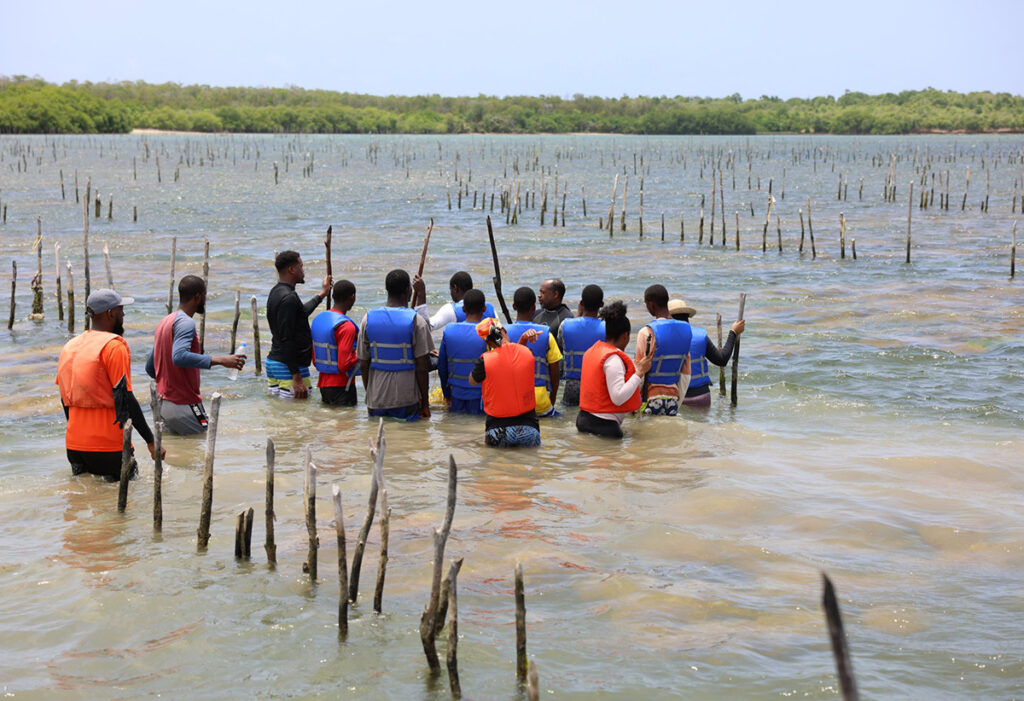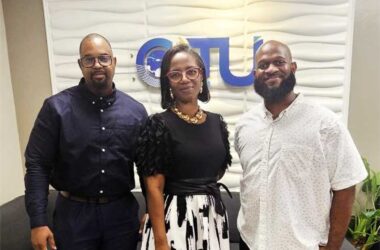Export Saint Lucia and The Food and Agriculture Organization of the United Nations (FAO) are continuing efforts to empower marginalised women, disabled farmers, and disadvantaged youth towards improving their livelihoods through the creation of business opportunities. This is part of an ongoing project focused on the role of gender, and the impacts of climate change on the seamoss and honey value chains. The global project that is being implemented by FAO in Small Island Developing States (SIDS) is titled Empowering Women in Food Systems and strengthening local capacities and resilience of SIDS agri-food sector.

The most recent component of this project involved providing theoretical and practical training on seamoss farming to a group of wards of the Boys Training Centre. Previous training included marketing and branding of seamoss and honey. The Boys Training Centre houses minors who are generally regarded as at-risk youth. Their involvement in this project seeks to provide them with a safe avenue to develop a lucrative career after leaving the centre upon turning 18. With instruction from Vaugh Serieux, aquaculturist at the Department of Fisheries, the boys were introduced to line preparation techniques, new tools, farm maintenance and the factors involved in sun-drying seamoss. After sun-drying the product is then packaged for sale as a dried product or other value-added products.
Sunita Daniel, Chief Executive Officer, Export Saint Lucia expressed, “Export Saint Lucia is pleased to be collaborating with the Food and Agriculture Organization of the United Nations on this project which is critical in ensuring that vulnerable populations are provided with opportunities to build new businesses and ultimately to export. We are happy to have collaborated with the Boys Training Centre which allows us to give young men the opportunity to learn a new skill and build businesses after their tenure there.”
The Honorable Emma Hippolyte, Minister with responsibility for Commerce and Business Development in Saint Lucia indicated that the project is expected to provide beneficiaries with skills to transition into production and entrepreneurship. She stated, “I am pleased with the work that Export Saint Lucia and the FAO are undertaking to ensure the sustainable growth of the seamoss and apiculture industries. I am especially happy that this training is being delivered to historically marginalized groups including the wards at the Boys Training Centre. This is a turn of a new tide.”
The Honorable Joachim Henry, Minister for Equity, Social Justice, and Empowerment in Saint Lucia, whose ministry has oversight of the Boys Training Centre, stated, “This project not only provides the boys with an opportunity to participate in society and become gainfully employed but also allows youth to contribute to food security and the achievements of the sustainable development goals.”
Following the two-day session, the group of 9 from the Boys Training Centre will practice drying their own batches of seamoss on drying trays that were constructed in-house. One participant succinctly shared, “I never planted seamoss before. Today I planted seamoss and it feels like a new door has opened for me. I love it.”
FAO is pleased to work with the youth and support building their capacity in seamoss production in a value chain where market access is facilitated by Export Saint Lucia. Ms. Extavour of FAO commended the boys for successfully building the drying racks and also participating in training sessions.
In the coming days, Export Saint Lucia and FAO will introduce the theoretical and practical components of apiculture to a group of females from the Bordelais Correctional Facility. A group of women will also be introduced to the practices involved in seamoss and honey production. These activities all fall under the work being done by the two agencies to strengthen these two value chains.













